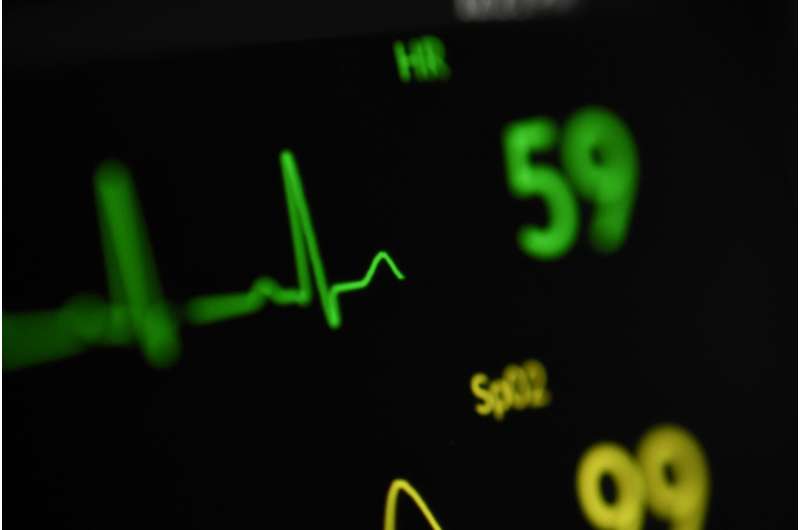This article has been reviewed according to Science X's editorial process and policies. Editors have highlighted the following attributes while ensuring the content's credibility:
fact-checked
peer-reviewed publication
trusted source
proofread
New genetic variants associated with resting heart rate and cardiovascular disease risk

Investigators have identified more than 60 previously unknown genetic variants associated with resting heart rate that may also contribute to increased risk of cardiovascular disease, according to recent findings published in Nature Communications.
"This is the largest study of its kind to-date. Besides adding to the list of variants linked to heart rate, the research provides robust causal relationships between heart rate and cardiovascular health," said Marilyn Cornelis, Ph.D., associate professor of Preventive Medicine in the Division of Nutrition and a co-author of the study.
A normal resting heart rate for adults falls between 60 to 100 beats per minute, according to the American Heart Association, and anything above this target range is associated with an increased risk of cardiovascular disease and mortality.
In the current study, the investigators sought to identify new resting heart rate–associated genetic variants by performing a genome-wide meta-analysis of data from 100 genetic studies that included more than 835,000 participants.
This analysis revealed 493 independent genetic variants in 352 loci, of which 68 were previously unknown to be associated with resting heart rate. Cardiovascular tissues were also identified as the primary enrichment sites for resting heart rate genetic variants and their expression was the highest in cardiomyocytes—muscle cells in the heart that help it contract.
Additional genetic analyses revealed that higher genetically predicted resting heart rate increases risk of dilated cardiomyopathy—when the heart's left ventricle becomes dilated and therefore doesn't pump enough blood into the body—but decreases risk of developing atrial fibrillation (abnormal heartbeat), ischemic stroke and cardioembolic stroke.
However, there was no evidence of a correlation between resting heart rate and risk of mortality, the authors noted.
Overall, the findings improve the understanding of the correlation between genetic variations and resting heart rate and its role in cardiovascular disease, which can inform patient care and treatment strategies going forward, according to the authors.
More information: Yordi J. van de Vegte et al, Genetic insights into resting heart rate and its role in cardiovascular disease, Nature Communications (2023). DOI: 10.1038/s41467-023-39521-2


















